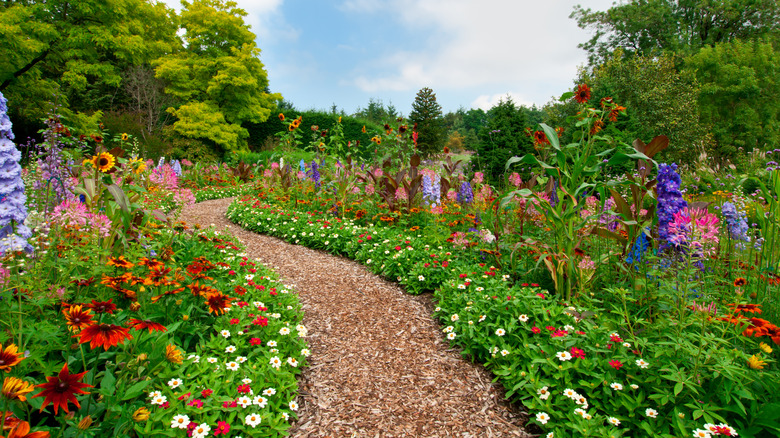Understanding the Benefits and Challenges of Wood Mulch
Wood mulch is a popular choice among gardeners for its versatility and aesthetic appeal. It serves multiple purposes, including enhancing the visual appeal of your garden, improving soil health, and helping to retain moisture. Choosing the right type of mulch can significantly impact the success of your garden, especially when considering factors like cost, effectiveness, and suitability for different types of plants.
One commonly used option is natural pine bark mulch. This mulch comes in various forms, such as larger chips or smaller shreds, making it easy to apply and visually pleasing. Pine bark mulch is lightweight, which makes it simple to spread across garden beds. It also helps in retaining the moisture that plants need, reducing the frequency of watering. Additionally, it allows air to circulate through its layers, promoting healthy root growth.
However, there are some drawbacks to consider. Pine bark mulch decomposes relatively quickly, which means it may need to be replenished every year or two, especially in areas with high rainfall. Its lightweight nature can also make it prone to being blown away by strong winds or washed away during heavy storms. Another potential issue is that pine bark can lower the pH of the soil, which is beneficial for acid-loving plants like azaleas, dogwoods, and certain vegetables such as potatoes and rhubarb. However, this might not be ideal for all types of vegetable gardens.
In some cases, larger pine bark nuggets can create an inviting environment for pests such as slugs and bugs, which can be problematic for vegetable patches. Therefore, it’s essential to assess the specific needs of your garden before choosing pine bark mulch.
Alternative Wood Mulches to Consider
If cost is not a concern, cedar mulch offers a more durable and aromatic alternative to pine bark. Cedar mulch is known for its long-lasting properties and pleasant scent, making it a great addition to any garden. It also has natural resistance to mold and insects, which can help protect your plants from common garden pests. Unlike pine bark, cedar mulch does not significantly affect soil acidity, making it a versatile choice for various plant types.
However, it’s important to note that cedar mulch should not be used if you have chickens in your garden, as the dust from cedar can cause respiratory issues for these birds.
Another alternative is arborist wood chips, which are often available for free from local tree trimming companies. These chips consist of a mix of woody debris, including branches, bark, and leaves, creating a rich and diverse layer of mulch that is particularly effective in perennial gardens. While arborist wood chips offer many benefits, they may not be suitable for newly established vegetable gardens, as they can temporarily rob plants of nitrogen during decomposition.
Choosing the Right Mulch for Your Garden
When selecting mulch for your garden, it’s important to consider the specific needs of your plants and the conditions of your landscape. Natural wood mulch placed directly on the soil is generally healthier than using a layer of landscape fabric. Landscape fabric may not be as effective for long-term weed suppression and can prevent essential nutrients from reaching the soil.
By carefully evaluating the pros and cons of different mulch options, you can make an informed decision that supports the health and vitality of your garden. Whether you choose pine bark, cedar, or arborist wood chips, each type of mulch has its unique advantages and considerations that should be taken into account based on your gardening goals.







